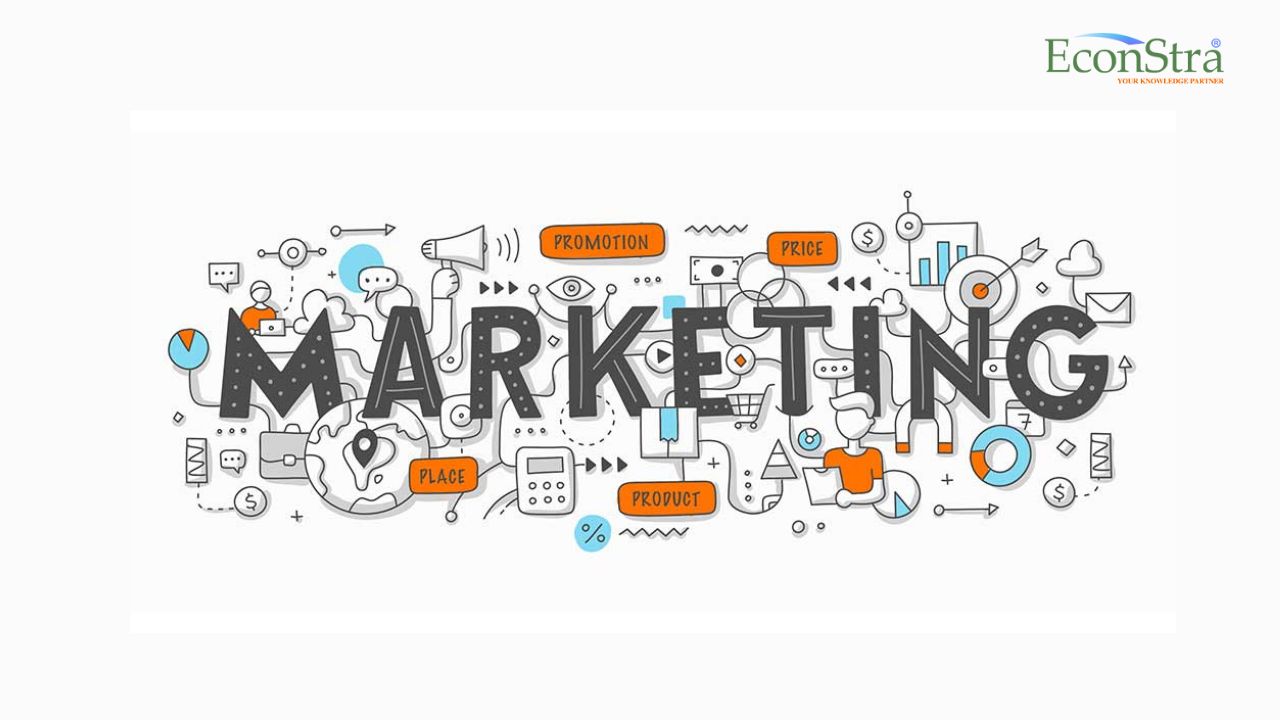by Subhadeep Chowdhury
Share

In today’s competitive business landscape, companies are constantly seeking ways to reduce operational costs while maintaining or improving efficiency and customer satisfaction. Customer Relationship Management (CRM) systems have emerged as vital tools that enable businesses to achieve these goals.
As a leading business consultancy, Econstra understands the importance of leveraging CRM technology to streamline operations, enhance customer relationships, and ultimately reduce costs. This article explores the various ways CRM systems can help businesses cut operational expenses, providing an in-depth look at the benefits and best practices associated with CRM implementation.
Understanding CRM Systems
A Customer Relationship Management (CRM) system is a software platform that helps businesses manage their interactions with current and potential customers. It consolidates customer information into a single database so business consultants can easily access and manage customer data.
This includes contact information, purchase history, preferences, and interactions across various channels. By providing a centralized repository of customer data, CRM systems enable businesses to streamline processes, improve customer service, and enhance decision-making.
How CRM Can Help You Reduce Operational Costs?
In today’s competitive business landscape, companies are constantly seeking ways to reduce operational costs while maintaining or improving efficiency and customer satisfaction. Customer Relationship Management (CRM) systems have emerged as vital tools that enable businesses to achieve these goals.
As a leading business consultancy, Econstra understands the importance of leveraging CRM technology to streamline operations, enhance customer relationships, and ultimately reduce costs. This article explores the various ways CRM systems can help businesses cut operational expenses, providing an in-depth look at the benefits and best practices associated with CRM implementation.
Understanding CRM Systems
A Customer Relationship Management (CRM) system is a software platform that helps businesses manage their interactions with current and potential customers. It consolidates customer information into a single database so business consultants can easily access and manage customer data.
This includes contact information, purchase history, preferences, and interactions across various channels. By providing a centralized repository of customer data, CRM systems enable businesses to streamline processes, improve customer service, and enhance decision-making.
Key Benefits of CRM for Reducing Operational Costs
-
Automation of Routine Tasks
One of the primary ways CRM systems reduce operational costs is by automating routine tasks. Tasks such as data entry, scheduling follow-ups, and sending out automated emails can be time-consuming and prone to errors when done manually. CRM systems automate these processes, freeing up valuable time for employees to focus on more strategic activities. Automation reduces the need for additional staff, thereby lowering labor costs.
-
Improved Customer Segmentation and Targeting
Effective customer segmentation is crucial for targeted marketing and sales efforts. CRM systems analyze customer data to identify patterns and trends, enabling business consultants to segment customers based on various criteria such as demographics, purchase history, and behavior. By targeting specific segments with tailored marketing campaigns, businesses can increase conversion rates and reduce the costs associated with broad, untargeted marketing efforts.
-
Enhanced Customer Service and Retention
Customer retention is more cost-effective than acquiring new customers. CRM systems provide business consultancy firms with tools to track customer interactions and preferences, allowing them to offer personalized service and proactive support.
By addressing customer needs promptly and effectively, businesses can enhance customer satisfaction and loyalty, reducing churn rates and the costs associated with acquiring new customers.
-
Streamlined Sales Processes
CRM systems streamline sales processes by providing sales teams with the tools and information they need to manage leads, track opportunities, and close deals efficiently. Features such as lead scoring, pipeline management, and sales forecasting enable business consultants to identify high-potential leads and allocate resources more effectively. This reduces the time and effort spent on low-value leads, thereby lowering sales costs and improving overall sales efficiency.
-
Data-Driven Decision Making
Access to accurate and up-to-date customer data is essential for making informed business decisions. CRM systems provide comprehensive analytics and reporting tools that enable business consultancy firms to gain insights into customer behavior, sales performance, and market trends. By leveraging these insights, businesses can make data-driven decisions that optimize operations, reduce waste, and enhance profitability.
-
Integration with Other Business Systems
CRM systems can be integrated with other business systems such as Enterprise Resource Planning (ERP), marketing automation, and e-commerce platforms. This integration ensures seamless data flow across different departments, eliminating data silos and reducing the need for manual data entry. By creating a unified view of business operations, CRM systems enable business consultants to identify inefficiencies, streamline workflows, and reduce operational costs.
Also read: What Is Enterprise Resource Planning
Best Practices for CRM Implementation
Implementing a CRM system requires careful planning and execution to maximize its benefits. Here are some best practices for successful CRM implementation:
-
Define Clear Objectives
Before implementing a CRM system, it is essential to define clear objectives that align with your business goals. Determine what you aim to achieve with the CRM system, such as improving customer service, increasing sales efficiency, or reducing operational costs. Clear objectives will guide the selection and customization of the CRM system to meet your specific needs.
-
Choose the Right CRM Solution
Selecting the right CRM solution is critical for successful implementation. Evaluate different CRM platforms based on their features, scalability, ease of use, and integration capabilities. Consider the specific requirements of your business consultancy and choose a CRM solution that aligns with your needs and budget.
-
Involve Key Stakeholders
Successful CRM implementation requires the involvement of key stakeholders from different departments, including sales, marketing, customer service, and IT. Engage stakeholders in the planning and decision-making process to ensure their buy-in and support. Collaboration among departments will facilitate the adoption and effective use of the CRM system.
-
Train and Support Users
Providing comprehensive training and ongoing support to users is essential for maximizing the benefits of the CRM system. Ensure that employees understand how to use the CRM system effectively and are aware of its features and capabilities. Continuous training and support will help users leverage the CRM system to its full potential and achieve the desired outcomes.
-
Monitor and Evaluate Performance
Regularly monitor and evaluate the performance of the CRM system to ensure it is meeting your objectives. Track key metrics such as customer satisfaction, sales performance, and operational efficiency to assess the impact of the CRM system on your business. Use this data to make informed adjustments and improvements to the CRM system and related processes.
Real-World Examples of CRM Success
To illustrate the impact of CRM systems on reducing operational costs, let’s look at some real-world examples of businesses that have successfully implemented CRM systems:
-
A Global Technology Company
A global technology company implemented a CRM system to streamline its sales and customer service processes. By automating routine tasks and providing sales teams with real-time access to customer data, the company reduced the time spent on administrative tasks by 30%. This enabled sales representatives to focus more on high-value activities, resulting in a 20% increase in sales productivity and a 15% reduction in operational costs.
-
A Financial Services Firm
A financial services firm used a CRM system to enhance customer segmentation and targeting. By analyzing customer data and segmenting clients based on their financial needs and behavior, the firm developed personalized marketing campaigns that increased conversion rates by 25%. The targeted approach reduced marketing expenses by 20%, leading to significant cost savings and improved profitability.
-
An E-commerce Retailer
An e-commerce retailer integrated its CRM system with its e-commerce platform to create a unified view of customer interactions and purchase history. This integration enabled the retailer to provide personalized product recommendations and targeted promotions, resulting in a 15% increase in average order value. The streamlined processes and improved customer insights also reduced operational costs by 10%.
Conclusion
In conclusion, CRM systems offer numerous benefits for reducing operational costs and improving business efficiency. By automating routine tasks, enhancing customer segmentation and targeting, improving customer service and retention, streamlining sales processes, enabling data-driven decision-making, and integrating with other business systems, CRM systems empower businesses to optimize their operations and achieve cost savings.
Leveraging CRM technology is essential for staying competitive and delivering value to clients. By following best practices for CRM implementation and learning from real-world success stories, businesses can harness the full potential of CRM systems to reduce operational costs and drive growth.
-
Automation of Routine Tasks
One of the primary ways CRM systems reduce operational costs is by automating routine tasks. Tasks such as data entry, scheduling follow-ups, and sending out automated emails can be time-consuming and prone to errors when done manually. CRM systems automate these processes, freeing up valuable time for employees to focus on more strategic activities. Automation reduces the need for additional staff, thereby lowering labor costs.
-
Improved Customer Segmentation and Targeting
Effective customer segmentation is crucial for targeted marketing and sales efforts. CRM systems analyze customer data to identify patterns and trends, enabling business consultants to segment customers based on various criteria such as demographics, purchase history, and behavior. By targeting specific segments with tailored marketing campaigns, businesses can increase conversion rates and reduce the costs associated with broad, untargeted marketing efforts.
-
Enhanced Customer Service and Retention
Customer retention is more cost-effective than acquiring new customers. CRM systems provide business consultancy firms with tools to track customer interactions and preferences, allowing them to offer personalized service and proactive support.
By addressing customer needs promptly and effectively, businesses can enhance customer satisfaction and loyalty, reducing churn rates and the costs associated with acquiring new customers.
-
Streamlined Sales Processes
CRM systems streamline sales processes by providing sales teams with the tools and information they need to manage leads, track opportunities, and close deals efficiently. Features such as lead scoring, pipeline management, and sales forecasting enable business consultants to identify high-potential leads and allocate resources more effectively. This reduces the time and effort spent on low-value leads, thereby lowering sales costs and improving overall sales efficiency.
-
Data-Driven Decision Making
Access to accurate and up-to-date customer data is essential for making informed business decisions. CRM systems provide comprehensive analytics and reporting tools that enable business consultancy firms to gain insights into customer behavior, sales performance, and market trends. By leveraging these insights, businesses can make data-driven decisions that optimize operations, reduce waste, and enhance profitability.
-
Integration with Other Business Systems
CRM systems can be integrated with other business systems such as Enterprise Resource Planning (ERP), marketing automation, and e-commerce platforms. This integration ensures seamless data flow across different departments, eliminating data silos and reducing the need for manual data entry. By creating a unified view of business operations, CRM systems enable business consultants to identify inefficiencies, streamline workflows, and reduce operational costs.
Best Practices for CRM Implementation
Implementing a CRM system requires careful planning and execution to maximize its benefits. Here are some best practices for successful CRM implementation:
-
Define Clear Objectives
Before implementing a CRM system, it is essential to define clear objectives that align with your business goals. Determine what you aim to achieve with the CRM system, such as improving customer service, increasing sales efficiency, or reducing operational costs. Clear objectives will guide the selection and customization of the CRM system to meet your specific needs.
-
Choose the Right CRM Solution
Selecting the right CRM solution is critical for successful implementation. Evaluate different CRM platforms based on their features, scalability, ease of use, and integration capabilities. Consider the specific requirements of your business consultancy and choose a CRM solution that aligns with your needs and budget.
-
Involve Key Stakeholders
Successful CRM implementation requires the involvement of key stakeholders from different departments, including sales, marketing, customer service, and IT. Engage stakeholders in the planning and decision-making process to ensure their buy-in and support. Collaboration among departments will facilitate the adoption and effective use of the CRM system.
-
Train and Support Users
Providing comprehensive training and ongoing support to users is essential for maximizing the benefits of the CRM system. Ensure that employees understand how to use the CRM system effectively and are aware of its features and capabilities. Continuous training and support will help users leverage the CRM system to its full potential and achieve the desired outcomes.
-
Monitor and Evaluate Performance
Regularly monitor and evaluate the performance of the CRM system to ensure it is meeting your objectives. Track key metrics such as customer satisfaction, sales performance, and operational efficiency to assess the impact of the CRM system on your business. Use this data to make informed adjustments and improvements to the CRM system and related processes.
Real-World Examples of CRM Success
To illustrate the impact of CRM systems on reducing operational costs, let’s look at some real-world examples of businesses that have successfully implemented CRM systems:
-
A Global Technology Company
A global technology company implemented a CRM system to streamline its sales and customer service processes. By automating routine tasks and providing sales teams with real-time access to customer data, the company reduced the time spent on administrative tasks by 30%. This enabled sales representatives to focus more on high-value activities, resulting in a 20% increase in sales productivity and a 15% reduction in operational costs.
-
A Financial Services Firm
A financial services firm used a CRM system to enhance customer segmentation and targeting. By analyzing customer data and segmenting clients based on their financial needs and behavior, the firm developed personalized marketing campaigns that increased conversion rates by 25%. The targeted approach reduced marketing expenses by 20%, leading to significant cost savings and improved profitability.
-
An E-commerce Retailer
An e-commerce retailer integrated its CRM system with its e-commerce platform to create a unified view of customer interactions and purchase history. This integration enabled the retailer to provide personalized product recommendations and targeted promotions, resulting in a 15% increase in average order value. The streamlined processes and improved customer insights also reduced operational costs by 10%.
Conclusion: How CRM Can Help You Reduce Operational Costs
In conclusion, CRM systems offer numerous benefits for reducing operational costs and improving business efficiency. By automating routine tasks, enhancing customer segmentation and targeting, improving customer service and retention, streamlining sales processes, enabling data-driven decision-making, and integrating with other business systems, CRM systems empower businesses to optimize their operations and achieve cost savings.
Leveraging CRM technology is essential for staying competitive and delivering value to clients. By following best practices for CRM implementation and learning from real-world success stories, businesses can harness the full potential of CRM systems to reduce operational costs and drive growth.
STAY IN THE LOOP
Subscribe to our free newsletter.
Why Operational Costs Are Draining Your Profits? Operational costs are a critical aspect of running a successful business, but when not managed properly, they can drain your profits and stifle growth. In a competitive market, maintaining profitability requires keen oversight of expenses and strategic planning. Econstra, as a leading business consultancy, provides insights and strategies […]
In the rapidly advancing digital landscape, Artificial Intelligence (AI) tools have emerged as transformative assets for businesses. Their potential to enhance efficiency, streamline operations, and drive innovation makes them invaluable for business consultants and organizations worldwide. For business consultants in India, AI’s strategic application can be particularly advantageous in navigating a diverse and dynamic market. […]
In today’s competitive business landscape, marketing is more crucial than ever. Companies are constantly seeking innovative strategies to stay ahead of the curve. Yet, navigating the complexities of modern marketing requires more than just creativity; it demands expertise and strategic insight. This is where a Business Consultant can make a transformative impact. Business consultants offer […]
Small and Medium-sized Enterprises (SMEs) play a crucial role in driving innovation, creating jobs, and contributing significantly to the economy. Despite their importance, SMEs often face a host of challenges, including limited resources, intense competition, and the need for continuous innovation. To navigate these challenges successfully, many SMEs turn to business consultants for their expertise […]




